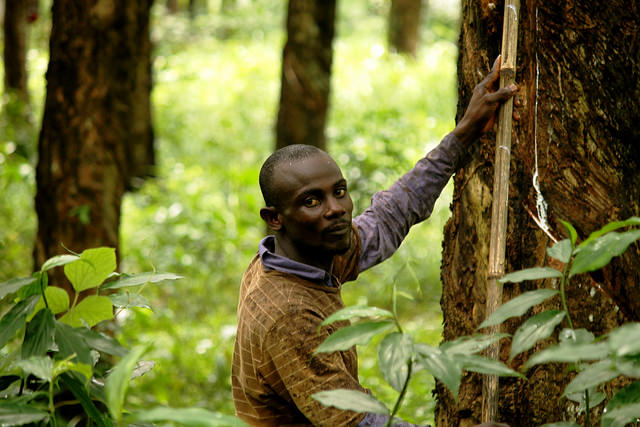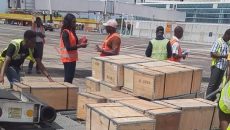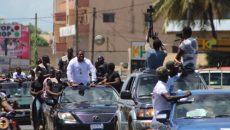HARBEL, Margibi – Firestone Liberia has clarified media reports that the recent amendment to the company’s concession agreement gives the company exclusive right for production.
Recent reports in media outlets such as a FrontPageAfrica claimed that the Senate in its recent amendment to the company’s concession agreement with the government gave it exclusivity in production in the country.
Firestone in a release condemned the reports terming them as being “simply wrong.†According to the company, the media reports concerning the recent Senate amendment of its concession agreement are also “erroneous and inflammatory†in nature and do not reflect the reality of the agreement.
“The only exclusivity provided in the amendment is what was already stipulated in the company’s 2008 concession agreement with the government of Liberia – the ability to exclusively engage in production in the production area of Firestone Liberia,†the company clarified in its statement.
Firestone and the government have been negotiating since 2016 for an amendment to its concession agreement for critical financial assistance to the company by extending certain rehabilitation term benefits included in the 2008 Concession Agreement that lapsed on December 31, 2015, the company noted.
The Senate Committee on Concessions and Investment has been reviewing the proposed amendment and reported to the general Senate body on Thursday, May 23, after which the senators voted to grant the request for amendment.
In its report, the Senate committee indicated that the price of rubber on the world market has been affected by global economic factors, which subsequently affected Firestone’s production. It said the company’s inability to replant during the years of the civil war had also threatened the continued viability of rubber production in the country and leading to a reduction in productivity of the plantation, compared to its pre-war status.
Meanwhile, the new agreement terms provide some duty and tax relief, as the company rebuilds its operations and business after the end of the civil war.
According to the amended agreement, Firestone maintains the exclusive right, permit, and license to engage in production in the production area and use in producing and exporting rubber and rubber products, as in the 2008 restated agreement.
“Government hereby grants to Firestone Liberia the right, permit, and licensed exclusively to engage in production in the production area (and subject to the other terms of this agreement in other areas in Liberia) and the utilization in Liberia of rubber and rubber products and the export of rubber products from Liberia, and except as otherwise provided below, to do so free from any requirement to obtain any further licence, permit, or authorization from government of any other person in order to do so,†the agreement states.
The agreement also exempts Firestone from paying import duties on goods and materials it brings to the country for the purpose of meeting its social obligations until 2042, such as approved medical and educational materials. The company will also be relieved of paying import duties on capital goods and items used directly in production throughout the period of its rehabilitation term.
It will, however, continue to pay the legal import duties on fuel, rice, and other goods provided that during the time of the rehabilitation term and extended rehabilitation.
However, except as otherwise provided in the amendment, the law bars the company from engaging in any business other than the production and use of rubber and rubber products and the export from Liberia of rubber products.
The new agreement requires Firestone to obtain permission from the government if it wishes to engage in the production and export of other agriculture products other than rubber.
But the company also reserves the right to sell rubber products to buyers of its choice and at a price it deems appropriate.
The agreement also grants Firestone the nonexclusive right at all times to purchase, without limit, rubber and rubber products from rubber farmers and other persons across Liberia.
Firestone, the largest private employer in Liberia, has called the amendment “a critical show of support by the Government of Liberia for private sector employment,†including its employees and their dependents.
Firestone recently began implementing a redundancy plan, weeks after the company announced that it would lay off 800 workers – 13 percent of its entire workforce.
At least 279 workers of the company’s Estates Department had received termination letters by Sunday, April 14. They are from the company’s 17th, 42nd, and 43rd Divisions.
In a communication served to the affected employees dated April 13, the company informed the workers that due to continued economic challenges faced by the company, it had become necessary to streamline its operations by eliminating a number of positions.
Featured photo by Bill E. Diggs/Solidarity Center



